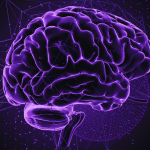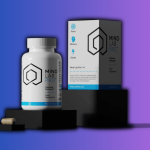
7 supplements to increase Blood flow to Brain
October 19, 2025
Mind Lab Pro Review in 2026 – is it a legit Nootropic?
November 14, 2025Is your body running on fumes, leaving you with that heavy, unshakeable fatigue?
That ‘low power’ feeling isn’t a lack of sleep. It’s a failure of cellular fuel delivery.
To truly eliminate persistent fatigue, you must fire up the cell’s powerhouses, maximize oxygen delivery, and rebalance your stress response.
We’ve compiled the 10 most powerful supplements shown in human trials to directly battle fatigue.
Let’s start with one of the most effective.
Disclosure: Some of the links below are affiliate links. This means that, at zero cost to you, we will earn an affiliate commission if you click through the link and finalize a purchase.
1. Iron
This essential mineral is the key to making hemoglobin, the protein that delivers every molecule of oxygen from your lungs to your body and brain.
Even a slight deficit without full-blown anemia can cause persistent, disabling fatigue simply by reducing oxygen delivery.
In a meta-analysis of 6 randomized trials and 6 cross-sectional studies, researchers found that iron supplementation significantly reduced fatigue in people with low iron stores but no anemia.
The doses of iron used in trials addressing fatigue are typically 60 to 200 mg per day.
2. Vitamin B12
It’s crucial for nerve function and is the primary key to converting food into usable energy.
A deficiency in B12 means your body can’t efficiently transport oxygen or convert fuel, causing fatigue and weakness.
In a study of 2,142 patients with fibromyalgia, 42% were found to have vitamin B12 deficiency.
Fatigue and memory loss were more common in this group, and even after adjusting for vitamin D levels, B12 deficiency remained significantly associated with fatigue.
The doses of Vitamin B12 used in trials addressing fatigue are typically 500 to 2000 micrograms per day.
3. Coenzyme Q10
This is the fat-soluble compound stored in your mitochondria, the powerhouses of your cells. It is the essential key to producing ATP, your body’s primary energy molecule.
Low levels of Coenzyme Q10 are directly linked to generalized, persistent fatigue.
A meta-analysis of 13 randomized controlled trials involving 1126 participants found that Coenzyme Q10 supplementation produced a statistically significant reduction in fatigue scores compared to placebo.
The effects were strongest with higher daily doses and longer treatment durations.
The doses of Coenzyme Q10 used in trials addressing fatigue are typically 100 to 300 mg per day.
4. Magnesium.
This essential mineral is the master cofactor for hundreds of enzymes. It’s the catalyst that converts nutrients into ATP, the body’s energy molecule.
When magnesium is low, ATP synthesis and muscle contractile processes become less efficient, producing muscle weakness, slower recovery, and persistent fatigue.
A randomized, double‑blind trial in 32 patients found that weekly intramuscular magnesium injections over 6 weeks led to significant patient reported improvements in energy, mood, and pain compared to placebo.
The doses of Magnesium used in trials addressing fatigue are typically 200 to 400 mg per day.
5. Panax Ginseng
This ginsenoside-rich adaptogen is traditionally used to boost stamina and vitality.
It works by supporting cognitive resilience and modulating your stress response pathways.
Panax Ginseng reduces fatigue and significantly enhances exercise tolerance.
A systematic review of 10 studies found modest evidence that Panax ginseng reduces fatigue in people with chronic illness and that it was generally well tolerated with a low risk of adverse events.
The doses of Panax Ginseng used in trials addressing fatigue are typically 200 to 400 mg per day.
6. Rhodiola Rosea
This is a potent adaptogenic herb that helps your body adapt to physical and environmental stress. It’s the ultimate supplement for burnout-related fatigue.
It works by balancing your cortisol response, which improves performance under pressure and cuts feelings of mental exhaustion.
In a trial of 56 healthy physicians on night duty repeated low-dose Rhodiola produced a statistically significant improvement in mental performance.
They saw improvements across tests of short-term memory, concentration, and associative thinking all with no reported side effects.
The doses of Rhodiola rosea used in trials addressing fatigue are typically 200 to 600 mg per day.
7. Ashwagandha
This Ayurvedic adaptogen is your shield against chronic stress. It powerfully reduces anxiety and lowers the stress hormone, cortisol.
By dampening chronic stress signaling and supporting recovery, Ashwagandha preserves mental energy and eliminates stress related fatigue.
In a randomized trial of 64 adults with chronic stress, a high-concentration Ashwagandha extract for 60 days significantly reduced stress and anxiety scores and substantially lowered serum cortisol.
These effects translate directly into meaningful reductions in stress-related fatigue and improved self reported vitality.
The doses of Ashwagandha used in trials addressing fatigue are typically 300 to 600 mg per day.
8. Caffeine
This is the ultimate fatigue fighter because it acts as an alertness accelerator by rapidly blocking adenosine receptors in your brain. This reduces your perceived effort.
Caffeine improves attention, reaction time, and endurance, and is especially powerful for enhancing performance during sleep deprivation.
In a double‑blind crossover trial of healthy men performing high intensity cycling in moderate hypoxia, a single 4 mg/kg dose of caffeine increased time to exhaustion by 12% and significantly reduced subjective fatigue and perceived effort.
The doses of Caffeine used in trials addressing fatigue are typically 100 to 400 mg per dose.
9. Vitamin D
Vitamin D receptors are present throughout the body, including in muscle tissue.
Deficiency is extremely common and is strongly linked to chronic fatigue, general tiredness, and muscle weakness.
Optimizing Vitamin D status is a simple but powerful strategy to restore energy levels.
In a study of primary-care patients presenting with fatigue, 77% had low Vitamin D.
Those treated for just five weeks to normalize their levels experienced significant improvements across all five fatigue subscales.
The doses of vitamin D used in trials addressing fatigue are typically 1000 to 4000 IU per day.
10. Creatine Monohydrate
While famous for muscle, Creatine plays a vital role in brain energy.
It’s the ultimate supplement for quickly replenishing ATP stores, which is critical during high cognitive demand.
This quick ATP boost is key to counteracting mental fatigue and supporting rapid processing.
In a double‑blind, placebo‑controlled trial of 20 healthy young adults, low‑dose creatine for 6 weeks raised plasma creatine and enhanced resistance to fatigue during repeated high‑intensity knee extensions without changing body mass, body composition, or maximal strength.
The doses of creatine monohydrate used in fatigue and energy studies are typically 3 to 5 grams per day.
It is always crucial to consult with a healthcare professional before starting any supplement, especially before taking a high dosage or if you have a pre-existing health condition.
